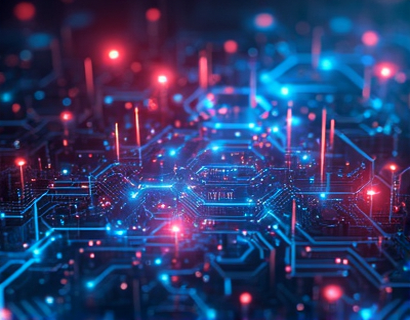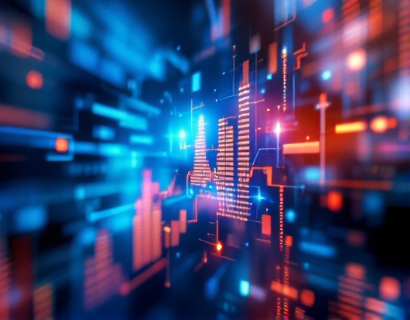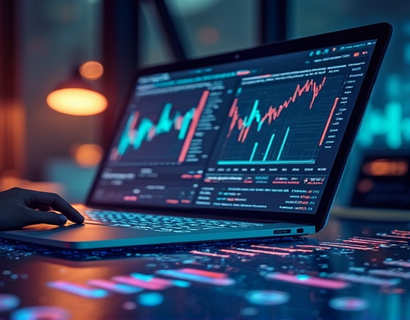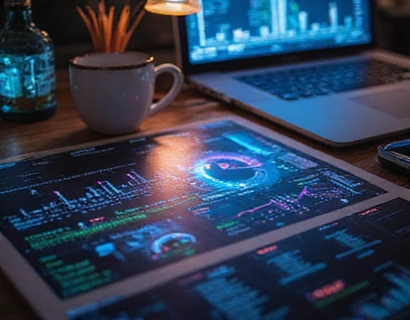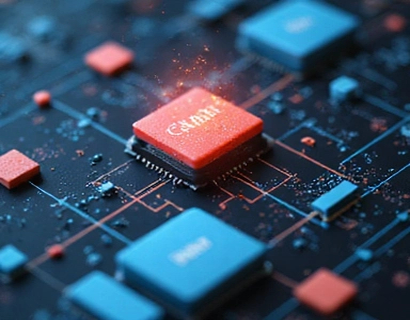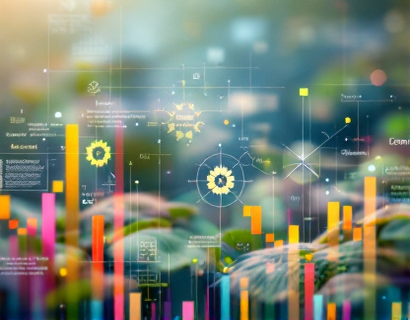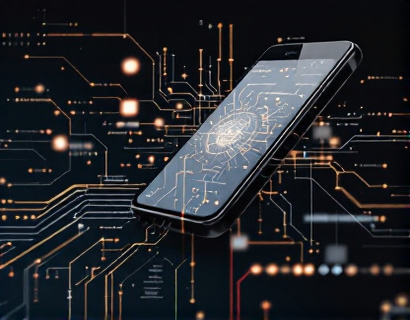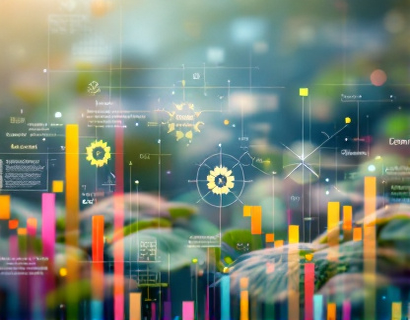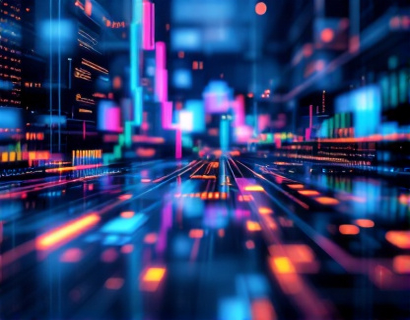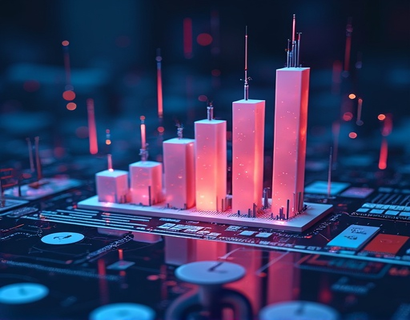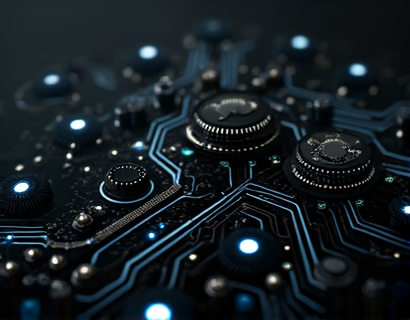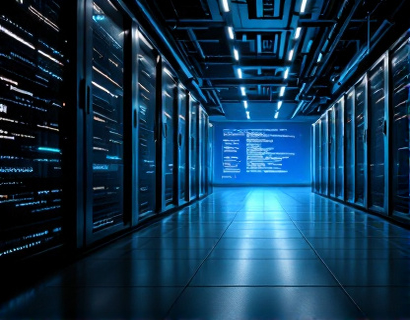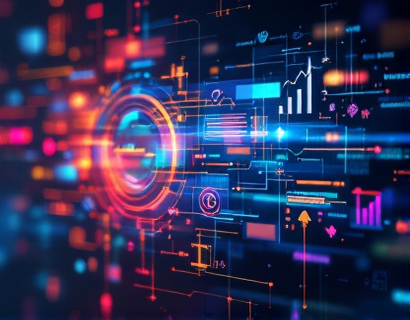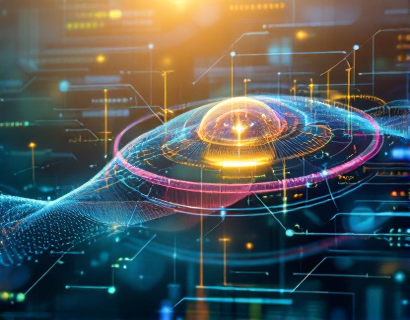Revolutionizing Industries: The Synergy of Crypto and AI
The intersection of cryptocurrency and artificial intelligence (AI) is giving birth to a new era of technological advancements, fundamentally transforming various industries and redefining digital experiences. This fusion of blockchain technology and advanced algorithms is creating next-generation solutions that enhance user experiences, streamline processes, and unlock unprecedented levels of efficiency and security. For tech enthusiasts and early adopters, understanding this synergy is crucial to navigating the future of digital innovation.
Blockchain's Role in Enhancing Security and Transparency
Blockchain technology, the backbone of cryptocurrencies, offers a decentralized and immutable ledger that ensures transparency and security. In the context of AI, blockchain can play a pivotal role in managing data integrity and privacy. By using blockchain, AI systems can access a tamper-proof source of data, reducing the risk of fraud and ensuring that the information used for training and decision-making is accurate and reliable. This is particularly important in industries such as finance, healthcare, and supply chain management, where data integrity is paramount.
For instance, in the financial sector, blockchain can facilitate secure and transparent transactions, reducing the need for intermediaries and lowering transaction costs. AI algorithms can analyze vast amounts of transaction data to detect patterns and anomalies, enhancing fraud detection and risk management. The combination of blockchain and AI thus creates a robust system that not only secures data but also provides insights that can drive better business decisions.
AI-Driven Optimization of Cryptocurrency Markets
The cryptocurrency market itself is a prime candidate for AI-driven optimization. Traditionally, crypto markets have been volatile and difficult to predict, but AI can change this landscape. Machine learning algorithms can analyze historical price data, market trends, and even social media sentiment to forecast market movements with greater accuracy. This predictive capability can help traders make more informed decisions, manage risks, and potentially increase returns.
Moreover, AI can enhance the trading experience by automating routine tasks such as order execution, portfolio management, and market monitoring. Smart contracts, powered by AI, can execute trades based on predefined conditions, ensuring that transactions are executed efficiently and without human error. This not only speeds up the trading process but also reduces the potential for human mistakes and biases.
Personalized User Experiences through AI
One of the most exciting applications of AI in the crypto space is the creation of personalized user experiences. AI algorithms can analyze user behavior, preferences, and transaction history to provide tailored recommendations and services. For example, a crypto wallet app can use AI to suggest optimal investment strategies based on the user's risk tolerance and market conditions. It can also alert users to potential scams or fraudulent activities by analyzing patterns in their transactions.
Furthermore, AI-powered chatbots and virtual assistants can offer 24/7 customer support, answering queries and providing guidance in real-time. This level of personalization not only enhances user satisfaction but also fosters greater trust and loyalty towards crypto platforms and services.
Supply Chain Optimization with Blockchain and AI
Beyond finance, the combination of blockchain and AI is revolutionizing supply chain management. In this sector, AI can optimize logistics and inventory management by predicting demand, optimizing routes, and reducing waste. Blockchain ensures that all transactions and movements within the supply chain are recorded transparently and securely, providing end-to-end visibility.
A practical example is the use of blockchain to track the origin and journey of products, from manufacturing to delivery. AI can analyze this data to identify bottlenecks, predict delays, and optimize resource allocation. This not only improves efficiency but also enhances traceability and accountability, which are crucial for industries such as food and pharmaceuticals.
Enhancing Cybersecurity with AI and Blockchain
Cybersecurity is another area where the synergy of AI and blockchain can make a significant impact. Traditional cybersecurity measures often struggle to keep up with the evolving threats posed by cybercriminals. AI can enhance security by continuously monitoring networks for anomalies and potential threats, enabling real-time detection and response. Blockchain, with its decentralized and immutable nature, can provide a secure and transparent way to store and manage security data.
For instance, AI-driven security systems can use blockchain to store cryptographic keys and access controls, ensuring that only authorized users can access sensitive information. This dual approach not only strengthens security but also provides a clear audit trail, making it easier to identify and mitigate security breaches.
Healthcare Innovations through AI and Blockchain
In the healthcare sector, the integration of AI and blockchain is paving the way for more efficient and patient-centric care. AI can analyze vast amounts of medical data to assist in diagnosis, treatment planning, and drug discovery. Blockchain can secure and manage patient data, ensuring privacy and compliance with regulations such as HIPAA.
A blockchain-based health record system can give patients control over their medical data, allowing them to share it with healthcare providers securely and selectively. AI can process this data to provide personalized health insights and recommendations. For example, AI algorithms can predict disease outbreaks by analyzing patterns in patient data, enabling proactive measures to protect public health.
Real-World Applications and Case Studies
Several real-world applications demonstrate the transformative potential of AI and blockchain in various industries. In the art world, blockchain has been used to verify the authenticity and ownership of digital art, while AI can analyze and authenticate artworks based on style and technique. This combination has opened new avenues for artists and collectors alike.
In the realm of smart cities, AI and blockchain are being used to optimize energy consumption and manage urban infrastructure. For example, AI can predict energy demand and adjust supply accordingly, while blockchain ensures that transactions related to energy trading are transparent and secure. This not only improves efficiency but also promotes sustainability.
Challenges and Considerations
Despite the numerous benefits, the integration of AI and blockchain also presents challenges. One of the primary concerns is the scalability of blockchain networks, which can struggle to handle high volumes of transactions. However, advancements in blockchain technology, such as layer 2 solutions and sharding, are addressing these issues.
Another consideration is the regulatory landscape, as both AI and blockchain are still evolving fields with varying levels of regulation across different regions. Compliance with data protection laws and financial regulations is crucial to ensure the sustainable growth of these technologies.
Conclusion
The convergence of cryptocurrency and AI is ushering in a new era of technological innovation, with far-reaching implications for various industries. By leveraging the strengths of both technologies, we can create more secure, efficient, and user-friendly digital solutions. As tech enthusiasts and early adopters, embracing this synergy will be key to staying ahead in the rapidly evolving landscape of digital innovation.





